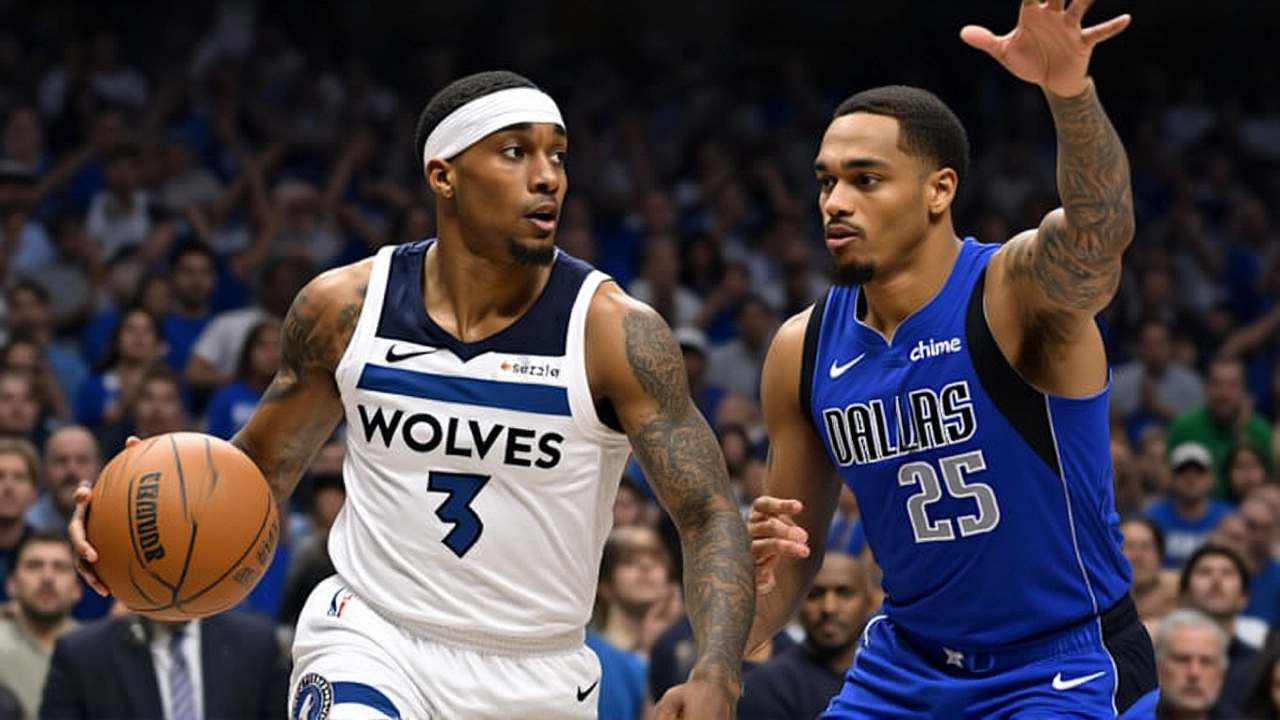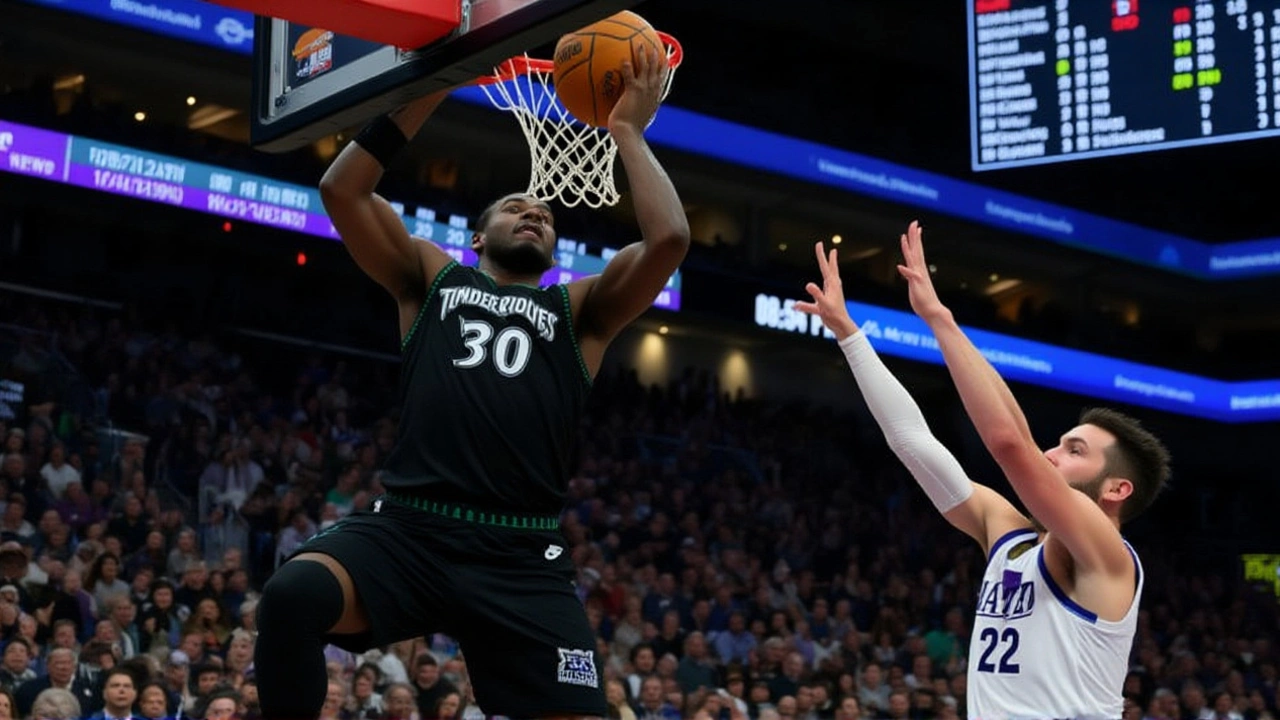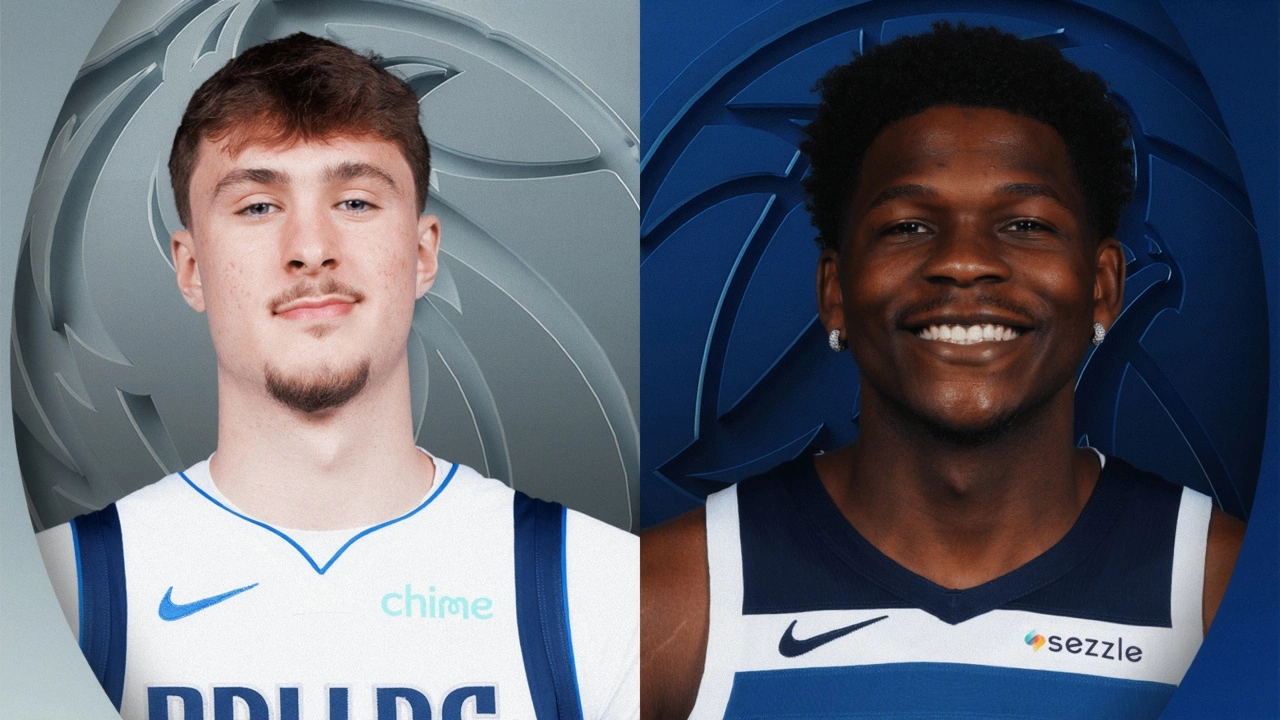The Minnesota Timberwolves didn’t just beat the Dallas Mavericks — they dismantled them. On Monday, November 17, 2025, at the Target Center in Minneapolis, the Timberwolves rolled to a 120-96 victory, turning what was expected to be a competitive Western Conference matchup into a one-sided statement. At the center of it all? Naz Reid, who exploded for a season-high 22 points, 12 rebounds, and three three-pointers — the kind of performance that silences doubters and energizes a home crowd. The Mavericks, playing without key rotation players, looked lost from the opening tip, shooting a dismal 40% from the field and coughing up 19 turnovers. It wasn’t just a loss. It was a reckoning.
A Third-Quarter Avalanche
The game didn’t start as a massacre. After the first quarter, it was 34-21 Timberwolves — solid, but not alarming. Then came the third. Minnesota went on a 37-point tear, the kind of offensive explosion that makes opposing coaches reach for the ice pack. Meanwhile, Dallas managed just 22 points in the same span. The difference? Execution. The Timberwolves moved the ball with purpose, finding open shooters and attacking the rim with relentless energy. Rudy Gobert, often seen as a defensive anchor, added 15 points, 9 rebounds, and 4 assists, showing he’s more than just a rim protector. He was a facilitator. A force. The Mavericks, by contrast, looked sluggish. Their offense stalled. Their defense vanished. Jaden Hardy, their brightest spot, scored 17 points on 4-of-11 from deep, but even his shooting couldn’t mask the team’s broader dysfunction.
Rebounds, Turnovers, and the Death of Momentum
The numbers tell the real story. The Timberwolves out-rebounded Dallas 71-53. That’s not just a stat — that’s a psychological beatdown. Every missed shot became a Timberwolves possession. Every second-chance point was a dagger. And then there were the turnovers. Nineteen. Nineteen. That’s nearly one every 2.5 minutes. In the NBA, turnovers lead to transition points. Transition points lead to demoralization. And demoralization leads to blowouts. The Mavericks’ 40% field goal shooting was the worst mark of their season — and one of the worst in the league this month. They didn’t just lose. They collapsed. And it wasn’t because of bad luck. It was because of poor execution, poor spacing, and poor leadership on the floor.
Standings Shake-Up: Timberwolves Climb, Mavericks Sink
Before this game, the Timberwolves were hovering around .500, a team with potential but inconsistent results. Now? They’re 9-5, fifth in the Western Conference, just 4.5 games behind the league-leading Oklahoma City Thunder. That’s not a fluke. That’s momentum. This win marked their first of what’s now a two-game winning streak — and it came against a team they’re expected to beat. The Mavericks, on the other hand, fell to 4-11. That’s the worst record in the West. They’re now 6.5 games back from the Thunder. Their road record? A brutal 1-7. And they’ve lost three straight. The only thing worse than losing? Losing like this — with no fight, no urgency, no identity.

Who’s Really to Blame?
It’s easy to point at injuries. The Mavericks were missing two starters, including rookie phenom Cooper Flagg, who’s been sidelined with a foot strain since early November. But here’s the thing: teams get injured all the time. The difference is how they respond. The Timberwolves didn’t just survive without their own injury concerns — they thrived. They played with cohesion. They shared the ball. They defended with purpose. The Mavericks? They looked like a team waiting for someone else to fix it. Their coach, Jason Kidd, didn’t make a single adjustment that changed the game. No defensive scheme. No lineup tweak. Just silence. And that’s the most dangerous kind of failure.
What’s Next?
Minnesota heads into a back-to-back against the Portland Trail Blazers, looking to extend their winning streak and solidify their playoff position. The Timberwolves have the depth, the defense, and now — with Reid playing like an All-Star — the scoring punch to make noise in the playoffs. For Dallas? The schedule doesn’t get easier. Their next game is on the road against the San Antonio Spurs, a team that’s quietly improved under Gregg Popovich. If the Mavericks can’t fix their turnovers, their shooting, and their heart, they’ll be looking at another lottery pick. And this time, it won’t be because they were unlucky. It’ll be because they were unprepared.

Why This Matters
This wasn’t just another November game. It was a turning point. For Minnesota, it proved they can dominate when they play with focus. For Dallas, it exposed a team that’s still searching for its soul. The NBA is a league of adjustments. Right now, the Timberwolves are adjusting. The Mavericks? They’re just adjusting to losing.
Frequently Asked Questions
How did Naz Reid’s performance compare to his previous season highs?
Naz Reid’s 22-point, 12-rebound outing on November 17, 2025, was his best of the season and his highest scoring game since January 2024, when he dropped 24 against the Lakers. This was his first 20-point, 10-rebound game since the 2023-24 playoffs, signaling a major step forward in his offensive confidence and role within the Timberwolves’ system.
Why did the Mavericks shoot so poorly?
Dallas shot just 40% from the field, largely due to Minnesota’s disciplined defensive rotations and aggressive closeouts. The Timberwolves forced the Mavericks into contested jumpers, particularly from the perimeter, where Dallas’s shooters — already inconsistent — struggled to find rhythm. The absence of Cooper Flagg also disrupted their offensive flow, leaving Jaden Hardy to carry too much of the scoring load.
What does this loss mean for the Mavericks’ playoff chances?
With a 4-11 record and the worst road record in the NBA, Dallas is all but eliminated from playoff contention. Even with a full roster, they’d need to go 30-10 over their final 40 games to sneak into the play-in — a near-impossible feat given their current form. This loss confirmed they’re in full rebuild mode, with next summer’s draft lottery likely their only hope.
How has Minnesota’s defense improved this season?
The Timberwolves have climbed from 18th to 7th in defensive rating this season, thanks to Rudy Gobert’s rim protection and the improved perimeter discipline of players like Anthony Edwards and Jaden McDaniels. Against Dallas, they held the Mavericks to just 22 points in the third quarter — a critical stretch that turned the game. Their ability to switch and recover has become one of the league’s most underrated strengths.
Is Cooper Flagg’s absence the main reason for Dallas’s struggles?
While Flagg’s absence is a major blow — he’s their most versatile playmaker and defensive stopper — the Mavericks’ problems run deeper. Their bench lacks scoring, their shot selection is poor, and their leadership is fragmented. Flagg could help, but he can’t fix a system that’s lost its way. The issue isn’t one player. It’s the entire culture.
What’s the Timberwolves’ ceiling this season?
With a 9-5 record and top-5 defense, the Timberwolves are legitimate Western Conference contenders. If Anthony Edwards continues his All-NBA form and Reid maintains his offensive surge, they could push for the 3rd or 4th seed. Their real test? Playing teams with elite guards — like Denver or Phoenix — without getting outplayed in crunch time. But for now, they’re playing like a team that believes.

